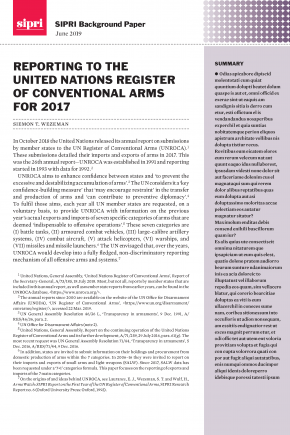Reporting to the United Nations Register of Conventional Arms for 2017
Since 1993 states have been asked to annually report exports and imports of major arms to the United Nations Register of Conventional Arms (UNROCA) as a transparency mechanism to prevent destabilizing accumulations of arms. UNROCA has been a partial success with most states participating at least once since 1993.
However, reporting to UNROCA has never been universal and has in recent years dropped to barely 25 per cent of UN member states—the lowest levels since 1993. Participation from states in regions with international tensions and conflict has been particularly low. UNROCA reports also continue to suffer from various quality problems.
This paper focuses on reporting for 2017, the most recent reporting year, as indicative for both the problems of participation and quality. Despite the problems and ‘competition’ from a similar reporting system under the Arms Trade Treaty (ATT), UNROCA remains the only global transparency instrument for arms transfers. However, it needs to be reinvigorated and expanded in scope.
I. Reporting trends
II. Assessing the quality of reporting for 2017
III. Conclusions

